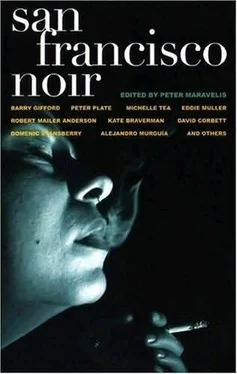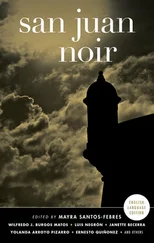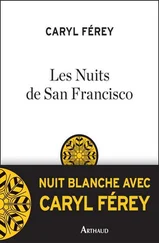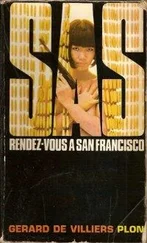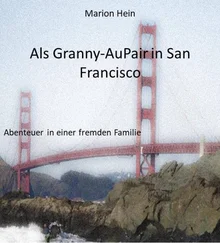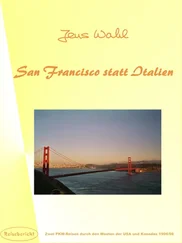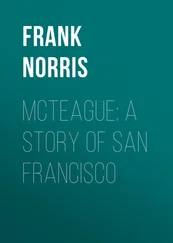Don’t get me wrong, the city is beautiful, but I live in another barrio. The dirty, low-down, underbelly side of town. Places that practically make the hovels of Calcutta look like the Taj Mahal. The garages turned into in-laws where three families live packed tight and desperate as boat people. Closets redone into bedroom suites. Such is life. And death. I was going to go visit death at 9 o’clock in General Hospital. In the morgue where the dead are kept. She wasn’t dressed liked you expect but there is no mistaking her when you meet her.
At 9 o’clock I met La Pelona face-to-face in the basement morgue of General Hospital. A Samoan in scrubs and flip-flops led me into a walk-in cooler the size of a taquería. Inside were row upon row of gurneys, each with their own stiff. He pointed out a corner where seven of them were stretched out on the floor. “We ran out of tables,” he laughed. I took no offense.
When I lifted the sheet on the first one, I was surprised to see the face was contorted like those mummies of Guanajuato, but unburned. “What happened?” I asked.
“They died of smoke inhalation,” the Samoan said.
Nobody even knew these poor bastards’ names. I could see the process that would now start: immigration tracking clues, an envelope with a name, or perhaps a phone number in one of their pockets. Find their hometown, relatives most likely, and tell them. Arrange for transportation. These guys were human sacrifices-but to what god? Why did I go see them? I wanted the rage to keep me going.
Valencia Street on a Friday night is an hormiguero. Suburbanites afraid of their own shadow crawling around in groups of ten. Sometimes more. One of them was standing on the corner, speaking into his little cell phone, asking for directions, looking like a character in that TV show Lost . It’s for them the ruins are being created, the families forced out, the murals destroyed. The other night I overheard one of them ask, “What’s this neighborhood called?” And her blond friend replied, “I don’t know, but it used to be called the Mission.”
I slid behind the counter at the Havana Social Club, the walls covered with the photos of poetas, famous and obscure, many of them dead. I ordered the specialty of the house, ropa vieja . Don Victor had the box booming “Chan Chan” by Compay Segundo. I’d just heard that Compay had checked out after ninety-three years of smoking cigars and that his real name was Francisco Repilado. This year my poet-friend-brother Pedro Pietri had moved to the other barrio, too. And today was the anniversary of my comadre’s death, whom I’d known thirty years. Now there were seven more checked into the other barrio.
The dead were all around me, urging me to keep on living, to keep their memory alive.
I paid up about midnight and still had two hours to kill.
I stepped outside and there was a white SUV with its engine running at the curb. Two creeps with necks like wrestlers sat inside. The uglier one rolled out.
“You Morales?”
“Who wants to know?”
“Mike Callahan wants to speak with you.”
“I’ll have to check my social calendar.”
The creep said nothing but opened the back door for me. He was maybe six-feet-four, three hundred pounds with his suit on.
“I was going that way myself,” I said.
I named the muscle-head driving Huey , and the ugly one Dewey . I knew Callahan, Irish Mafioso, head of a renegade builder’s association; he moved around City Hall like a man with a lot of muscle behind him, which he had. Muscle, but not the brains. The thugs he’d sent to pick me up were quiet the whole time they drove. Except when Dewey farted and Huey said to him in all seriousness, “God bless you.”
We drove to another part of the city. We were in that industrial area near the freeway. A long time ago, we used to play in these empty lots as kids; riding our bikes down Pot Hill, as we called it. Now, giant commercial buildings, all chrome and steel, were in the throes of birth. We went under the freeway, took a side road behind a construction site, and parked. We were in Mission Creek. I knew this place well, another childhood hangout where we’d gone swimming. Now, fancy houseboats were docked with an occasional massive catamaran or sailboat. The pier creaked like backpacks on Guatemalan Indians. Nearby, the freeway roared with traffic headed downtown, and I could see the skyline of the city like a giant neon dollar sign flashing billions.
Huey indicated I should go to dock number 10. It was a fancy houseboat, but without any class; in fact, it was painted whorehouse-red. Callahan was alone in the back room, the air thick with scotch I could smell from where I was standing, ten feet away. He indicated I should sit down.
“You smoke cigars, Morales?” He was about to light a big stogie with a gold-plated lighter.
“I hate cigars and Republicans.”
“Don’t be so uptight. We’re relaxing…follow me?”
“Okay. So we’re relaxing…”
“You know what these are?” He handled the stogie like a pool stick in his big hamlike hands. “ Cohibas . The finest of all Cuban cigars.” He let that sink in for a moment. “And-illegal in this country.”
“What’s it to do with me?”
“Hey-I’m trying to show you that we all have our imperfections. But you’re not listening. So what you pissed off about? Go on, spit it out.”
“I cited the Apache Hotel.”
“The one that burned?”
“But never for a fire hazard. Because none existed.”
“I don’t follow you.”
“It burned on my watch. I’m the fall guy, and I don’t want to be the fall guy.”
“If that’s what you’re worried about…”
“You don’t get it. Seven people died. I don’t think it was an accident.”
“It was a fleabag hotel. Everything changes.”
“It’s against city ordinance to tear down low-income housing.”
He shrugged. “Someone was careless…that’s the way to look at it. It won’t be an inconvenience to you.”
The way they looked at people as an inconvenience made me sick.
“Why don’t you explain it to the seven stiffs in the morgue?”
He rose from his chair, cigar swinging in his mouth. “Take a look outside. There, out the window.” He gestured to the lit-up skyline, the buildings glowing, sucking up whole dinosaur herds of energy, perched like toxic towers spewing radiation. “That there, let me tell you, is the highway to the future. You can ride it or you can, well…be run over by it.” He laughed at his own joke, his jowls trembling with fat.
To me it seemed like a nightmare. “I intend to find the source of the Apache Hotel fire…in case you’re wondering.”
His eyes turned gray like those of a great white shark. “You have a loft that’s not warranted. It’s, ah, how shall I say?…a safety hazard.”
“I have the permits.”
“That’s a matter of opinion. One of your neighbors might file a complaint. Claim it was illegal.”
“We’re all illegal here. Except the Rammaytush. And we killed them all.”
“So you’re a do-gooder, is that it? Look, Morales, nobody appreciates a smart-ass like you stirring up trouble for other people. Let me remind you-with your illegal loft, your shit smells just as bad. So think about it.”
He went back to his cigar and I knew the interview was over.
Huey was waiting for me.
“That’s all right,” I said. “I’ll walk.”
At 2:00 in the morning, Sixteenth and Valencia is a current of human electricity, AC-DC all the way. I’d caught the last show at Esta Noche, the tranny club on Sixteenth. I wanted to see “La Jessica,” advertised as one of the most beautiful illusionists in the world. The soft spotlight in the smoky club made her indeed seem beautiful, at least the illusion of beauty, draped in sequins and sheer glittering gowns that gave the impression she had a body like Angelina Jolie.
Читать дальше
